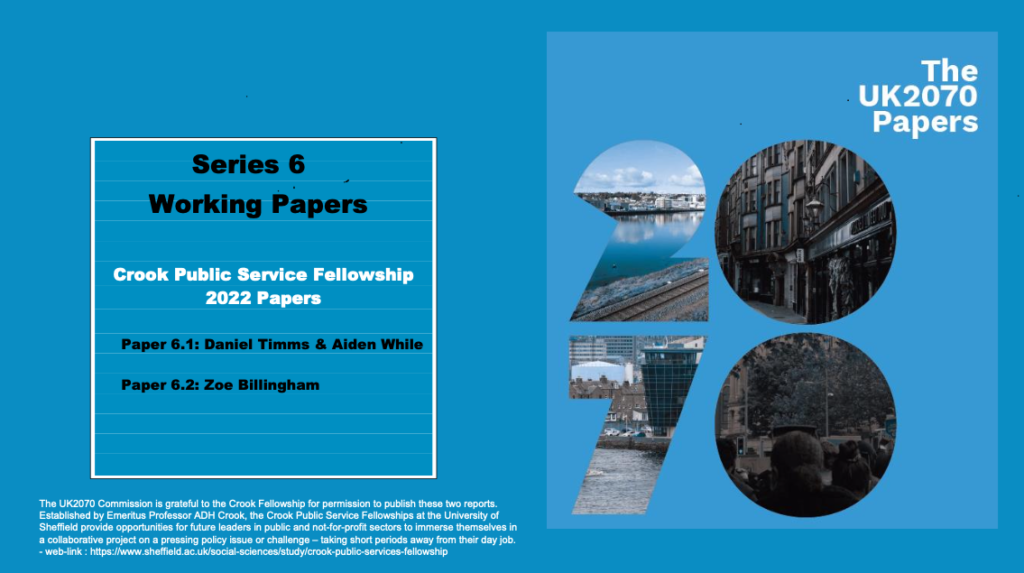Those at the forefront of levelling-up opportunity for the Tees Valley have gathered at Teesside University for an important summit designed to help tackle regional inequality and provide additional opportunities for jobs and growth.
The UK2070 Commission’s Teesside Taskforce, held a formal evidence session at Teesside University this week, where it heard how areas including freeports, steel, hydrogen and the wider net zero agenda can provide a boost for the region.
It comes in the days after Teesside University was named as the top university in the country for social inclusion, highlighting the institution’s work to embrace social mobility and encourage greater participation in higher education from underrepresented groups.
The UK2070 Commission, chaired by Lord Kerslake, is an independent inquiry into national and regional inequalities in the UK. Its aim is to illustrate the potential for change and identify an agenda of action to deliver it.
Last year, as part of the Commission, a Teesside Taskforce was set up to examine how certain sectors could increase quality job opportunities in the region and ultimately enhance people’s prospects and wellbeing.
Teesside University has already contributed several pieces of evidence for the Teesside Taskforce and has been working in partnership with the Commission to develop actions around the levelling up agenda. Professor Stephen Cummings, Pro Vice-Chancellor, (Research and Innovation) at Teesside University contributed to the evidence session.
It also included feedback from the likes of Tees Valley Mayor Ben Houchen and CEO of the Materials Processing Institute Chris McDonald, who have been instrumental in the Teesside Taskforce. A final report will now be published and shared with Government as part of the UK2070 Commission.
Teesside University Vice-Chancellor and Chief Executive, Professor Paul Croney, said: “I was delighted to welcome Lord Kerslake and the UK2070 Commission to Teesside University for this important session.
“As an anchor institution with a civic mission, Teesside University takes an uncompromising approach to levelling-up opportunity. This can only be achieved with cooperation and collaboration, and we have welcomed the work of the Teesside Taskforce in galvanising this critical activity.
“As the UK seeks to build back better, it has never been so important for the voice and experience of the regions to be reflected in national policy and decision-making. Teesside University will continue to contribute the knowledge, skills and insight to develop solutions that shape the future, today.”
The report from the Teesside Taskforce advised that the scale of change needed to transform the Tees Valley requires productivity and employment to increase by 10% and the rate of innovation to double.
The Taskforce recommends the development of a regional Clean Growth Strategy and vision that rejects the narrative around ‘left behind towns’ and builds on the ambitions of the Tees Valley and opportunities such as Freeports, investment in Net Zero and Treasury North.
Lord Kerslake, Chair of the UK2070 Commission, said: “I was pleased to chair this formal Teesside Taskforce session and thank you Teesside University for hosting the UK2070 Commission. This is the culmination of extensive consultation across the whole of Teesside. Evidence was provided by Mayor Ben Houchen, Tees Valley Combined Authority, Teesside University, Industry partners and international submissions from South Africa.
“Further helping realise the future potential of the Tees Valley, whilst reducing inequality, I wanted to thank everyone, especially Mayor Houchen and the Combined Authority, for their support.”
Tees Valley Mayor Ben Houchen said: “We have an unprecedented opportunity right now to transform Teesside, Darlington and Hartlepool, level up our communities, drive growth and create good-quality, well-paid jobs for local people generations to come. I was pleased to welcome Lord Kerslake to the region and give evidence as to how we can achieve our ambitions, ambitions that will deliver a brighter future for local people as we spearhead the UK’s transition to being a net zero nation by 2050.”
Chris McDonald, CEO of the Materials Processing Institute, said: “I am pleased to have been invited to give formal oral evidence to the UK2070 Commission on their independent enquiry into national and regional inequalities. As part of the UK2070 Teesside Task Force, I will be focussing on how we can realise the future potential of the Tees Valley, creating jobs and growth, whilst reducing inequality.”
David Whysall, Managing Director of UK Infrastructure, Turner & Townsend, said: “Turner & Townsend has a long-standing commitment to the Teesside region and its people, having been established in Darlington 75 years ago. We fully support the aims of the UK2070 Commission and the Teesside Taskforce and are pleased contribute to today’s evidence session. From freeports to hydrogen and net zero, there are some fantastic opportunities in the region, but they need to be harnessed in the right way to ensure that the social, environmental and economic benefits are felt by everyone on Teesside.”
Dr Rebecca Maserumule, Department of Science & Innovation,
Republic of South Africa Chief Director and Member of the Green Hydrogen Commercialization Ministerial Panel said:
“We congratulate the transformational work that Lord Kerslake, the UK2070 Commission and the Teesside Taskforce is embarking on.
“The Teesside Taskforce, in particular, has created the pathway for local-to-global collaboration that will catapult the built-back-better agenda to the level of international co-operation and trade. Turner & Townsend, part of the legacy of the Darlington economic landscape, has used its international reach to connect our Department, Gauteng and Limpopo Provinces with the UK and specifically Teesside Valley.
“An ethos that we invoke from the African Proverb ‘If you want to go fast, go alone. If you want to go far, go together’.
“We look forward to collaborating with UK2070 Commission & it’s partnerships across the UK.”
Stephen McCartney, Managing Director of Turner & Townsend Africa, said:
“Turner & Townsend commends the UK 2070 Commission and Teesside Taskforce on making such a fundamental contribution to socio-economic development and social impact. This will herald a new economic renaissance for the UK market.
“With our pan-African purview, we look forward to supporting partners in Africa, like the Department of Science & Innovation in Republic of South Africa, to connect with industry players and Government stakeholders. Economic Reconstruction in South Africa, and an Africa Rising agenda supported by the African Continental Free Trade Area (AfCFTA), make the region an perfect partner with the UK to secure a new sustainable future for our economies. We look forward to supporting the UK2070 Commission and the Teesside Taskforce.”
Editors Notes:
Further details can be found here www.uk2070.org.uk
Background
The UK2070 Commission is an independent inquiry into city and regional inequalities in the UK. Chaired by Lord Kerslake, it has been set up to conduct a review of the policy and spatial issues related to the UK’s long-term city and regional development.
The UK2070 Commission has set up a Task Force in support of the long-standing aspirations for the wellbeing of the Teesside.
This will depend upon a major increase in number and quality of employment opportunities in the region.
As highlighted in the findings of UK2070 Commission, this is critical to delivering the levelling up of social conditions and lifetime prospects of the communities in the Teesside. This is also of national importance to the economic future of the UK in recalibrating the capacity, performance, and resilience to risk of all its major regions, including the Teesside.
Media contacts:
Gary Martin:
Communications Manager, Teesside University, 07557 082 810.
Michael S Henson:
Turner & Townsend, 07514 738044








